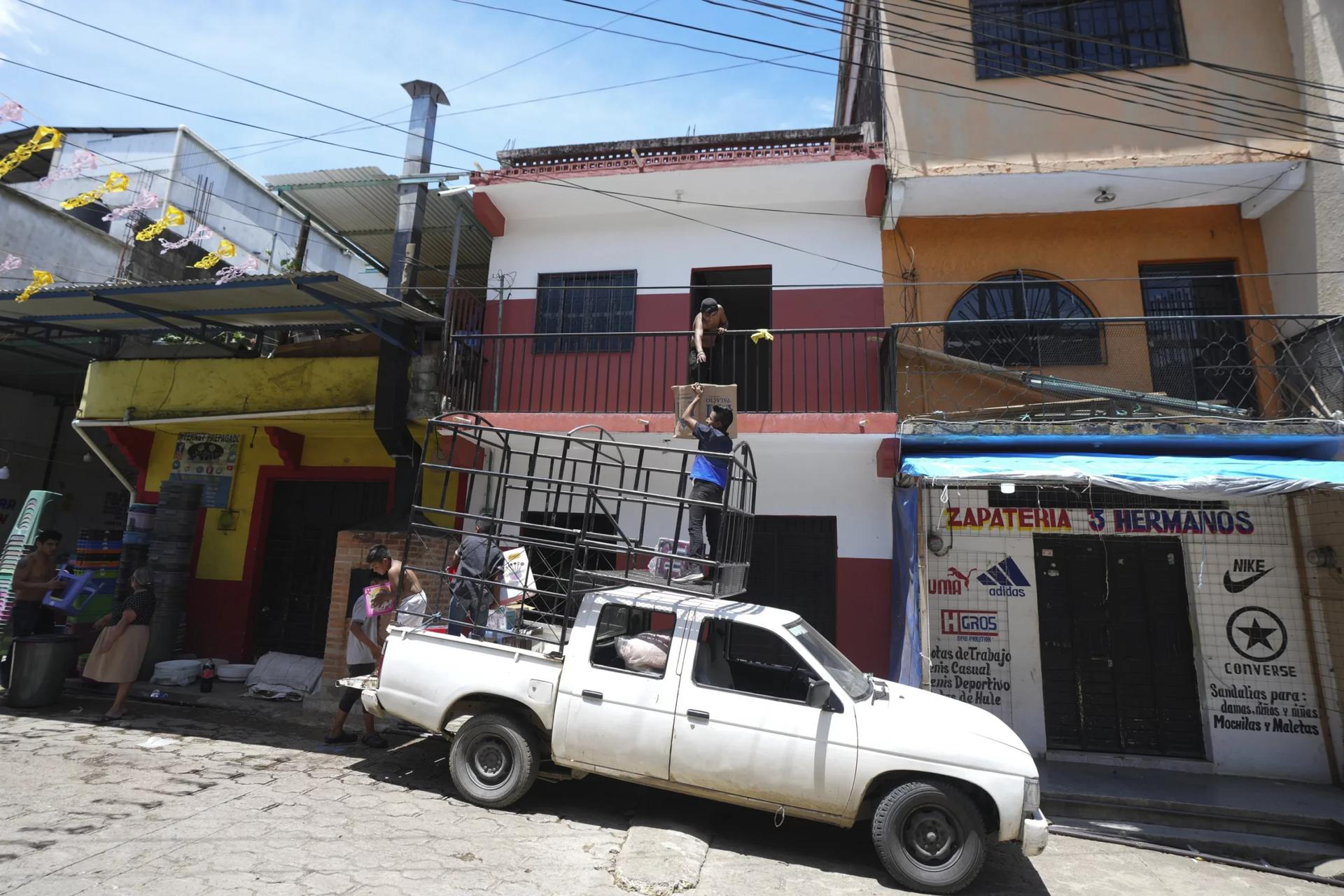SÃO PAULO, Brazil – An unprecedented wave of violence in Sierra Madre de Chiapas, the mountain region in the southern border of Mexico, has been causing deaths and famine among several communities. Earlier this week, hundreds of people fled to Guatemala.
The Diocese of Tapachula, which includes parishes in the mountain communities caught in the middle of the war between two major drug cartels – the Sinaloa cartel and Nueva Generación from Jalisco – has released a letter on July 24 to denounce such a situation to the authorities.
The document describes how small growers of Indigenous origin have been forced to work for the cartels. They don’t receive anything in exchange for their labor, but they have to pay a fine if they don’t appear to work.
They are mostly deployed to take care of the so-called filters, illegal road blockades implanted in areas they know will be visited by the rival group. The community members must inspect the cars passing by in order to identify members of the other gang.
When skirmishes between the cartels break out, such peasants are rapidly deployed to the battle, but they never receive weapons, something that makes them easy targets in the field. The number of dead and injured people has been continuously growing.
The diocese’s document questions the role of the army and of the national guard, whose cars are often visible and even near a region where a filter is happening, but they don’t move to intervene.
“Brothers of the civil authority of the distinct levels of government, we keep waiting for you to intervene to do what you have to do: to reestablish the rule of law in our communities,” the letter reads.
The document also demands the community members not to accept joining the cartels in exchange for money and call on all victims of the war between drug traffickers to denounce what they have been facing.
“God help us all to be artisans of peace and to build with our honorable work a more just world, less indifferent and more solidary, a world with a human community of true brothers,” the letter concludes.
According to Father Martin Moreno, the general vicar of the Diocese of Tapachula, Sierra Madre de Chiapas has always been a poor area of Indigenous communities, but it had always enjoyed peace.
One of the historical social problems in the region has been migration from South and Central America. People coming from those regions have always necessarily passed by Chiapas, so the Church implemented two shelters in the diocese, besides a few houses on the way northwards.
It all changed when Nueva Generación decided to conquer part of the Sinaloa cartel’s territory, about a year and a half ago.
“Nueva Generación is a notoriously violent cartel. Sinaloa was more interested in keeping drugs coming from the south. The war broke out and everything changed,” he said.
Last week, Moreno said, two bands of criminals opened fire against each other, injuring several Indigenous people.
On July 24, another major battle happened in the region of Amatenango de la Frontera. Videos of the shooting went viral on social media and showed drones firing at streets and houses. Many people had to hide at home. Others left the city and looked for shelter with relatives in other areas.
Earlier this week, another clip showed the so-called Cartel de Chiapas y Guatemala arriving in Nueva Morelia, Chiapas. That would be a third criminal gang joining the conflict. In the video, members of such a cartel appear wearing military uniform and holding guns, while they make fun of the Sinaloa group.
“All those gangs force the community members to join them. Either they die from hunger or they die due to that war,” Moreno said.
Since last week, at least 500 people from Sierra Madre de Chiapas left their lands and crossed the border with Guatemala, seeking refuge in the municipality of Cuilco, in Huehuetenango.
Guatemala’s President Bernardo Arévalo told the press that most of such refugees came from cities like Motozintla de Mendoza, Nueva Providencia and Comapala. The Guatemalan authorities explained that they structured shelters for the newly arrived.
“It’s a shame that another president has the necessary sense of humanity and agreed to help the immigrants, while Mexico’s government tries to downplay the problem,” Moreno said.
The priest said that the diocese has been campaigning to collect food in the region in order to take it to the most impacted communities.
“All the government does is to pretend nothing of it is happening,” Moreno said.















